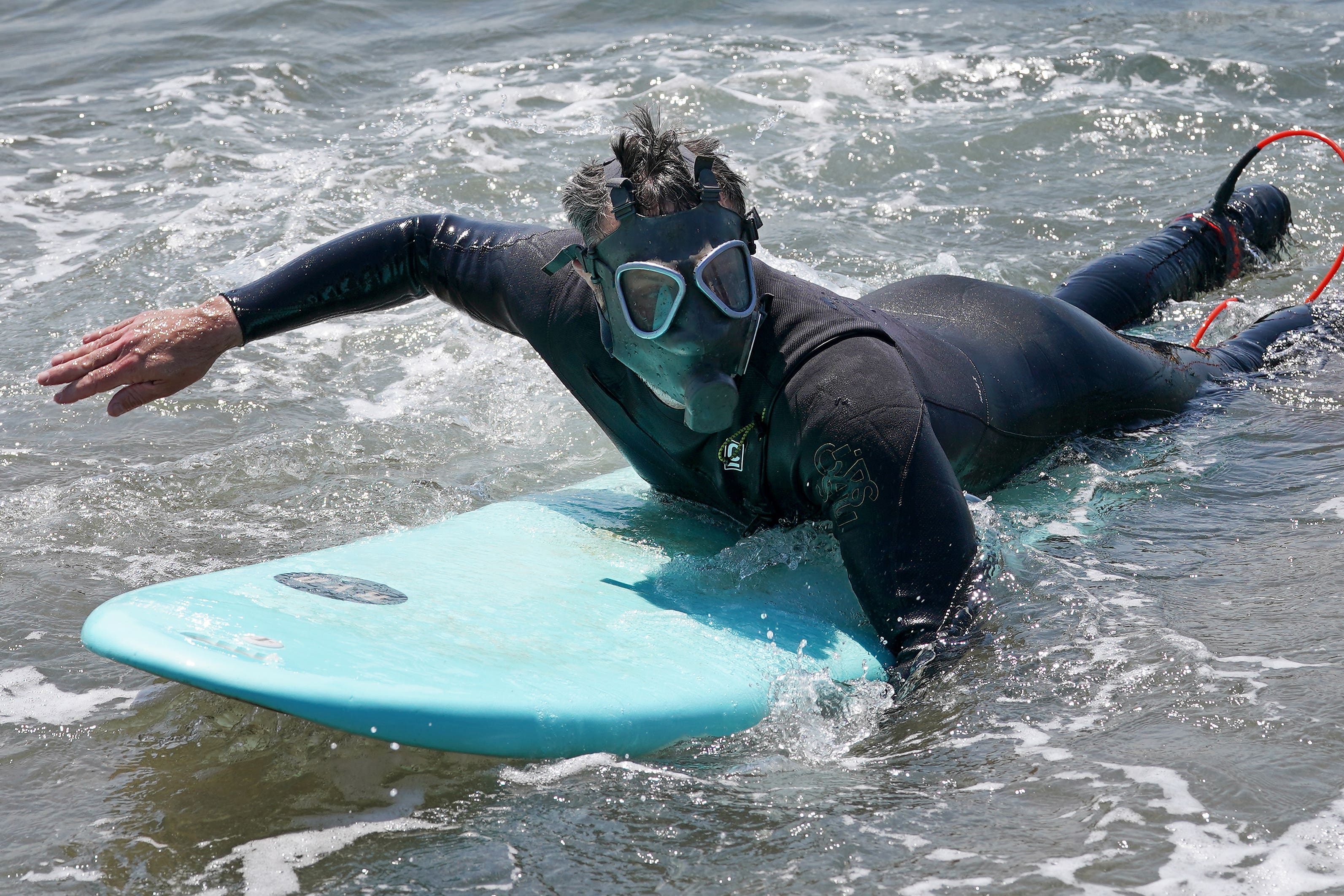I fought the water company over sewage and was told no one has a legal right to swim in the sea
Shocked by the poor quality of my local swimming hole that made one of my friends seriously ill, I sought redress, writes Kit Yates – only to be told I should effectively ignore it and go to the beach anyway


I’m a keen outdoor swimmer. I swim with a group of friends most weeks in our local stretch of the Thames. Come rain or shine, winter or summer, there are usually at least two of our number bracing the river waters north of Oxford.
We do so cautiously, however, especially in winter when it has been raining heavily and it is almost guaranteed that sewage will have been pumped into the river a few miles upstream.
And we’re not alone in taking precautions – even events such as the famous Oxford and Cambridge university Boat Race on the River Thames were affected this weekend, with one rower complaining about the amount of “poo in the water” and at least three competitors laid low with stomach bugs (River Action UK claims Thames Water is responsible for that one). Cambridge, the winning team, even eschewed their traditional “throw the cox in the water” schtick in favour of an excrement-free lift of their teammate, Hannah Murphy, up inside the boat.
And I don’t blame them: for me, the giveaway as to whether there has been a discharge or not is the smell. Not the smell you might think you would associate with raw sewage, but the smell of detergent in the water. That and the bubbles floating on the surface next to you as you swim on down. If we do decide to go in on such days, then we are cautious to keep our heads above the water and to ensure we do not imbibe.
The group has become somewhat depleted over the last few years. One of our members became seriously ill after swimming in the water. So ill, in fact, he was hospitalised. His infection was isolated to a species of bacterium he could only have picked up in the river. His experience has served to deter many of our number from returning to the river, and to caution others against joining our group.
Ironically, our stretch of river is one of only two in the country to have been granted “bathing water status”. This does not mean what you imagine it would. It does not guarantee that the water is of sufficient quality to bathe in. It only means that it is monitored regularly, so that we know exactly how poor the water quality is.
When I swim in the sea, I am more cautious than in the river. The unpredictable nature of the waves means you can’t guarantee not to get water in your mouth when you’re splashing about. Last summer, I went on holiday with my family to a lovely little cottage in Cornwall about 100 metres from our favourite beach.
I was careful to check the website, which details whether there was sewage released into the small stream that flows over the beach and into the sea. Early in the morning of the penultimate day of our trip I saw that sewage had been released into the stream. None of our party went into the sea that day.
By the time we got home, I felt thoroughly fed up that the water company had spoiled our holiday for us by releasing sewage into the stream. It’s one thing to do it in the winter (although still unacceptable in my view), but this was August – peak holiday season.
I had read a letter in The Times that described the experience of one holidaymaker taking a water company to court. He claimed £500 for loss of amenity. His case, he wrote, was settled out of court. His settlement was the £500 he claimed plus the £50 it had cost to lodge the claim. The author told readers that the claim took “minutes”, and he concluded the letter by encouraging others to do the same.
So I did. Only my case was not so straightforward. I received a letter back from South West Water vigorously rebutting the claim. Some parts of the rebuttal I found difficult to credit. The audacity of it shocked me. Although they admitted they had indeed discharged from their sewage treatment works upstream of the beach, they denied that the dumping had any impact on the bathing water:
“The discharge was of extremely short duration, so any affect [sic] to water quality would have been minimal, albeit it is denied there was any affect [sic] at all.”
They went on to claim that I had no inherent right to swim in the sea and that, even if I did, their discharge would not have impacted my ability to swim or to enjoy the beach.
The letter was worded strongly and indicated that they would fight the claim robustly in court. Lacking the legal knowledge, the time and the money to fight a court case that would likely take place in the South West, miles from where I live, I decided, after much deliberation, to withdraw my claim. I fought the water company, and I didn’t win.
It was with interest that I read an article about another outdoor swimmer, Jo Bateman, who is suing South West Water, as I had attempted to, for loss of amenity. Interestingly, South West Water had used a similar line of defence with her, claiming it has no legal obligation to keep rivers and seawater clean of sewage and that no one has a legal right to swim in the sea.
I’m pleased to say Bateman is made of sterner stuff than I am, and has decided to fight South West Water in court. Both from the perspective of my holiday swimming and my regular weekly river swim, I will await the results of her battle with great interest.
The Independent has contacted South West Water for comment
Join our commenting forum
Join thought-provoking conversations, follow other Independent readers and see their replies
Comments